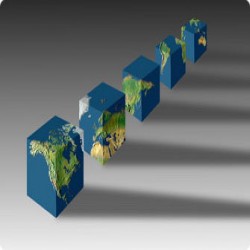Analytics
The best Experts' Views, Marks and Forecasts on Economics >>
Rules of Entry and Participation. Become a Member of Professional Society of Economic Journalists! >>

Overall, levels of economic freedom decreased around the globe. This year’s report shows that the average economic freedom score fell to 6.64 in 2009, the lowest in nearly three decades, from 6.67 in 2008.
“In response to the American and European debt crises, governments around the world are embracing perverse regulations and this has huge, negative implications for economic freedom and financial recovery,” said Mirsuljan Namazaliev, CAFMI ‘s Managing Director.
Hong Kong again ranked number one for economic freedom, followed by Singapore and New Zealand.
The United States experienced one of the largest drops in economic freedom, falling to 10th place overall from sixth in 2010. Much of this decline is a result of higher spending and borrowing on the part of the U.S. government, and lower scores for legal structure and property rights.
Zimbabwe once again received the worst score among the 141 jurisdictions included in the study, followed by Myanmar, Venezuela, and Angola.
“The link between economic freedom and prosperity is undeniable: the countries that score highly in terms of economic freedom also offer their people the best quality of life,” said Azis Isa, CAFMI’s Policy Analyst.
The political uprisings sweeping across the Arab World are the result of people wanting the outcomes of economic freedom – prosperity, job growth, political freedoms, and poverty reduction.
The average score of Kyrgyz Republic decreased to 6.81 from 6.93. The country’s ranking fell to 70 from 61 last year as a result of negative global and local impacts. The government keeps failing to complete structural reforms. The weaknesses of our economy still are:
a) Many state enterprises
b) Impartial courts
c) Weak security of property rights
d) Non-tariff trade barriers
e) Compliance cost of importing and exporting
f) Foreign investment restrictions
The annual peer-reviewed Economic Freedom of the World report is produced by the Fraser Institute, Canada’s leading public policy think-tank, in cooperation with independent institutes in 85 nations and territories.
The Economic Freedom of the World report uses 42 different measures to create an index ranking countries around the world based on policies that encourage economic freedom. The cornerstones of economic freedom are personal choice, voluntary exchange, freedom to compete, and security of private property. Economic freedom is measured in five different areas: (1) size of government, (2) legal structure and security of property rights, (3) access to sound money, (4) freedom to trade internationally, and (5) regulation of credit, labor, and business.
Research shows that individuals living in countries with high levels of economic freedom enjoy higher levels of prosperity, greater individual freedoms, and longer life spans